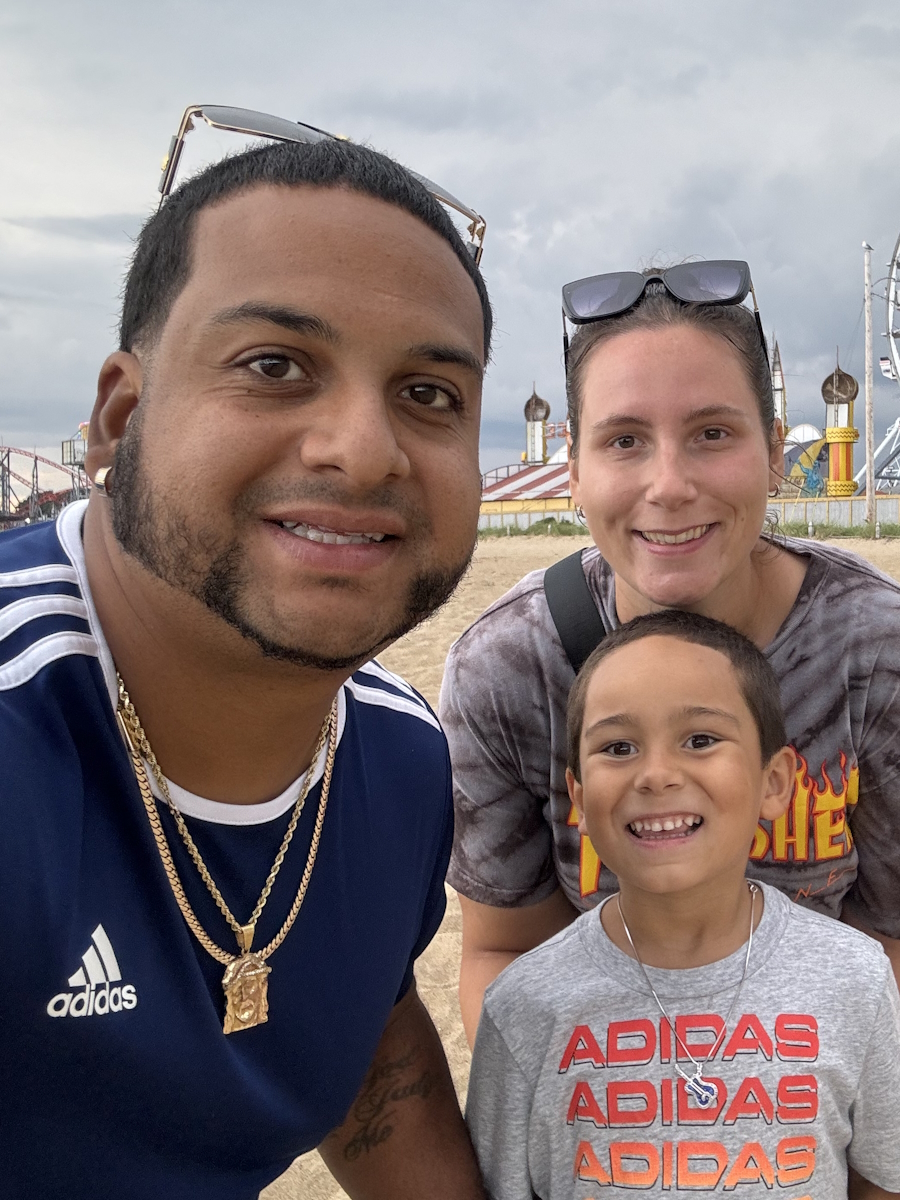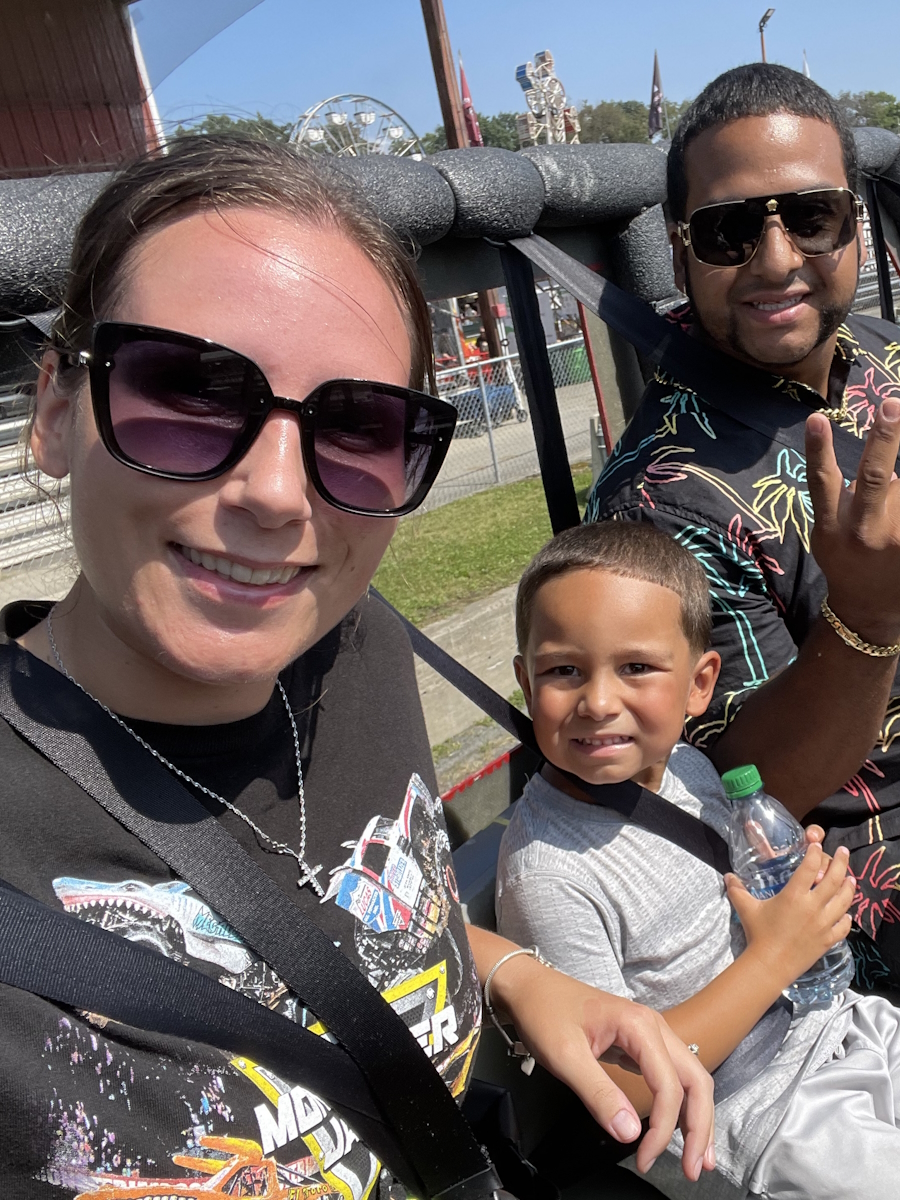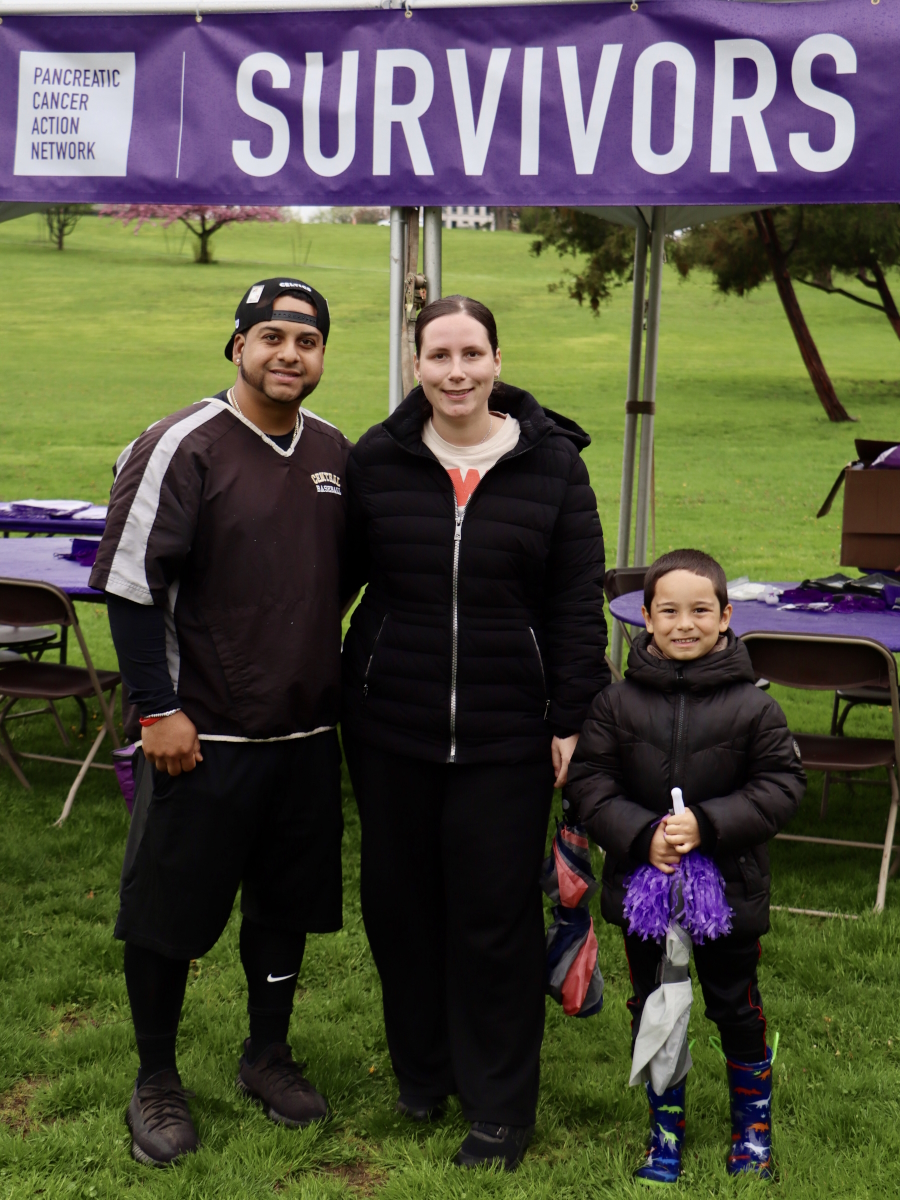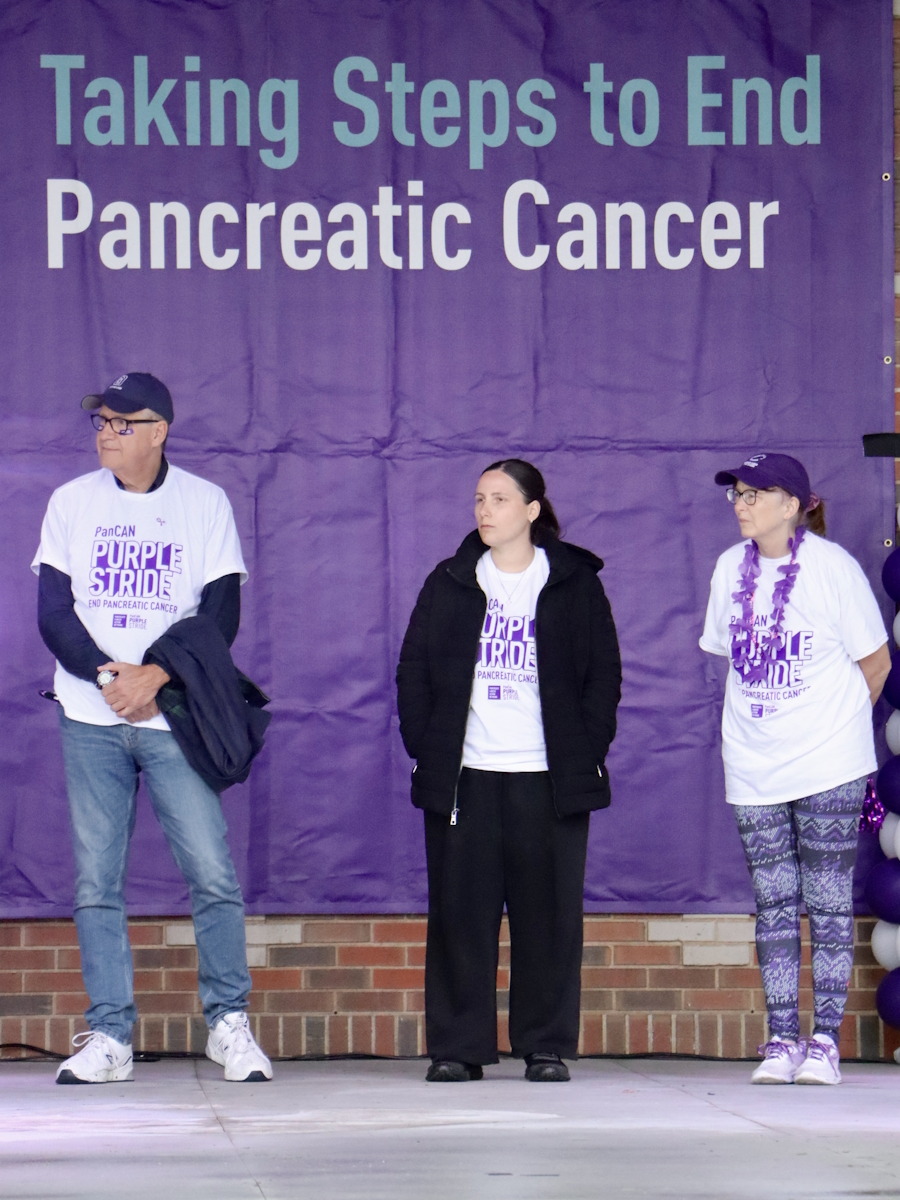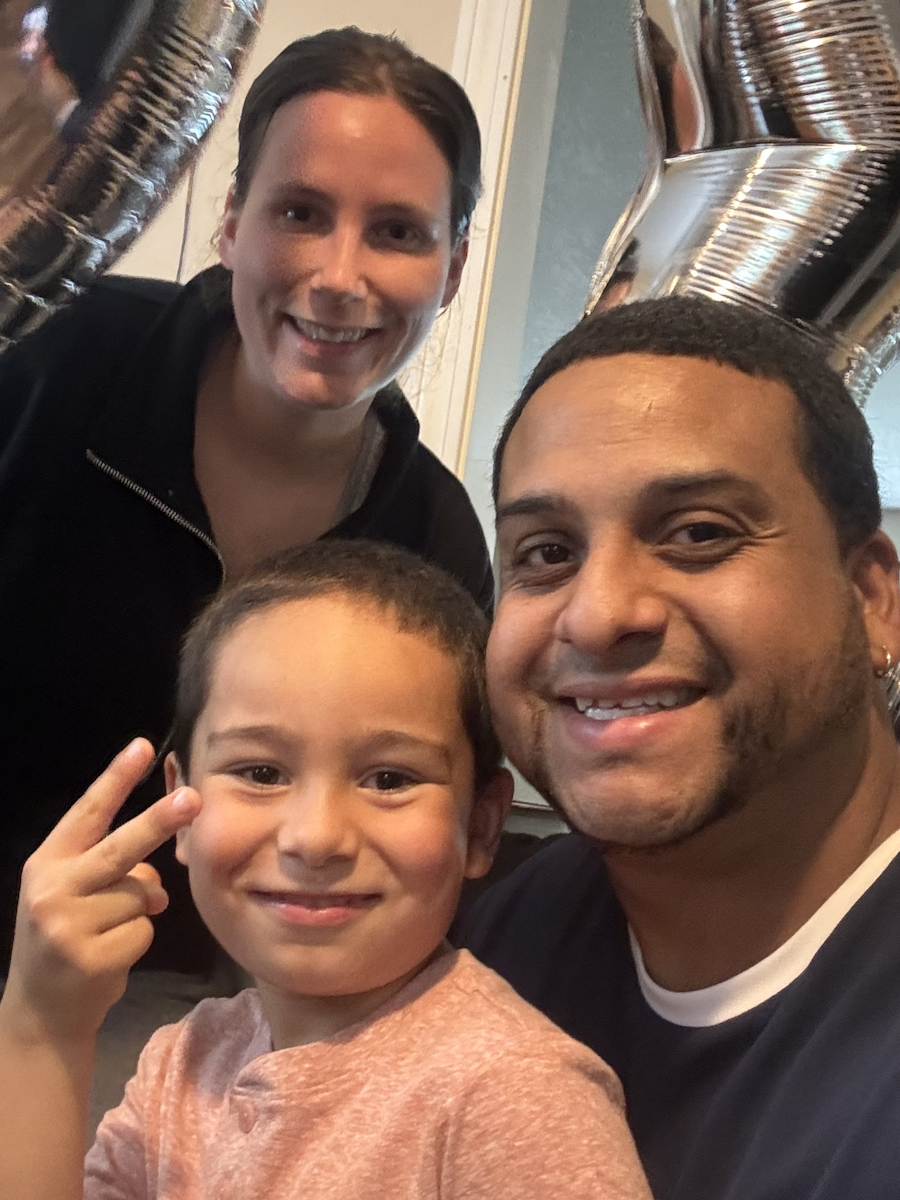How an ER Visit Uncovered Hayley’s Pancreatic Neuroendocrine Tumor (pNET) at 27
At just 27 years old, Hayley’s life took a completely unexpected turn. She was living a busy, family-focused life when sudden pelvic pain sent her to the ER. The scans didn’t explain the pain, but they revealed something she never saw coming: a mass on her pancreas. That incidental finding turned out to be a pancreatic neuroendocrine tumor, a rare diagnosis that often goes unnoticed until much later.
Interviewed by: Nikki Murphy
Edited by: Katrina Villareal
What’s striking about Hayley’s experience is how quickly things moved. Because she was already working with a surgeon for a completely unrelated concern, she was able to get a biopsy within weeks. The tumor was small enough for her to qualify for a Whipple procedure, also known as pancreaticoduodenectomy. This complex, hours-long surgery removed part of her pancreas, duodenum, bile duct, and gallbladder. She didn’t need chemotherapy, something her medical team told her was a huge blessing.

Even though Hayley’s treatment happened fast, its mental and emotional toll has been long-lasting. She admits that she struggles with “scanxiety” before each follow-up imaging and feels the weight of survivorship, especially knowing she’s much younger than most people diagnosed with pancreatic cancer. She also deals with lasting digestive changes from the procedure, forcing her to completely rethink her diet.
Through it all, Hayley has stayed focused on what matters most: her son. Being apart from him during surgery was the hardest part, but she credits him with motivating her to get through every step. She’s deeply grateful to the ER doctor who took her situation seriously and pushed for follow-up, believing that early detection quite literally saved her life.
Her advocacy centers on the importance of early detection. Hayley hopes that one day, full-body scans will be part of routine physicals so more people have a chance at catching serious illnesses before symptoms appear. She wants others to know that survivorship looks different for everyone, and that even when the road is difficult, there’s hope.
And in a surprising twist, those scans revealed more than cancer: Hayley learned she was born with one kidney and a unicornuate uterus, conditions she never would have discovered otherwise. That makes her son’s full-term birth feel even more miraculous. (Editor’s Note: A unicornuate uterus is a rare condition where only one half of the uterus forms.)
Hayley’s story is a powerful reminder to listen to your body, advocate for yourself, and push for answers because sometimes the thing you weren’t looking for ends up being the most important discovery of your life.
Watch Hayley’s video to find out more about her story:
- How unexpected pelvic pain led to an early pancreatic neuroendocrine tumor diagnosis
- The rare discovery that may have saved her life at just 27
- Why her doctors called her one of the “lucky ones”
- The life-changing truths she learned from a single scan
- How early detection shaped her future and her mission to help others
- Name: Hayley O.
- Age at Diagnosis:
- 27
- Diagnosis:
- Pancreatic Neuroendocrine Tumor (pNET)
- Symptoms:
- Severe right-sided pelvic pain
- Nausea
- Diarrhea
- Treatment:
- Surgery: Pancreaticoduodenectomy (Whipple procedure)
This interview has been edited for clarity and length. This is not medical advice. Please consult with your healthcare provider to make informed treatment decisions.
The views and opinions expressed in this interview do not necessarily reflect those of The Patient Story.

Inspired by Hayley's story?
Share your story, too!
Related Stories
Tabbie V., Pancreatic Neuroendocrine Tumor (pNET)
Symptoms: Abdominal pain, unusual organ "inflammation" feeling when walking, fatigue
Treatments: Chemotherapy (oral and IV), surgeries (Whipple procedure or pancreaticoduodenectomy, liver resection or partial hepatectomy)
...
Hayley O., Pancreatic Neuroendocrine Tumor (pNET)
Symptoms: Severe right-sided pelvic pain, nausea, diarrhea
Treatment: Surgery (pancreaticoduodenectomy or Whipple procedure)
...
Drea E., Gastric Neuroendocrine Tumor (gNET), Stage 3, Grade 1
Symptoms: Fainting spells, fatigue, dizziness, anemia, shortness of breath, absence of menstruation, unexplained weight loss, night sweats
Treatment: Surgery (total gastrectomy with a Roux-en-Y reconstruction)
...
Haley M., Pancreatic Neuroendocrine Tumor (pNET)
Symptom: Persistent digestive issues
Treatment: Surgery (pancreaticoduodenectomy or Whipple procedure)
...


